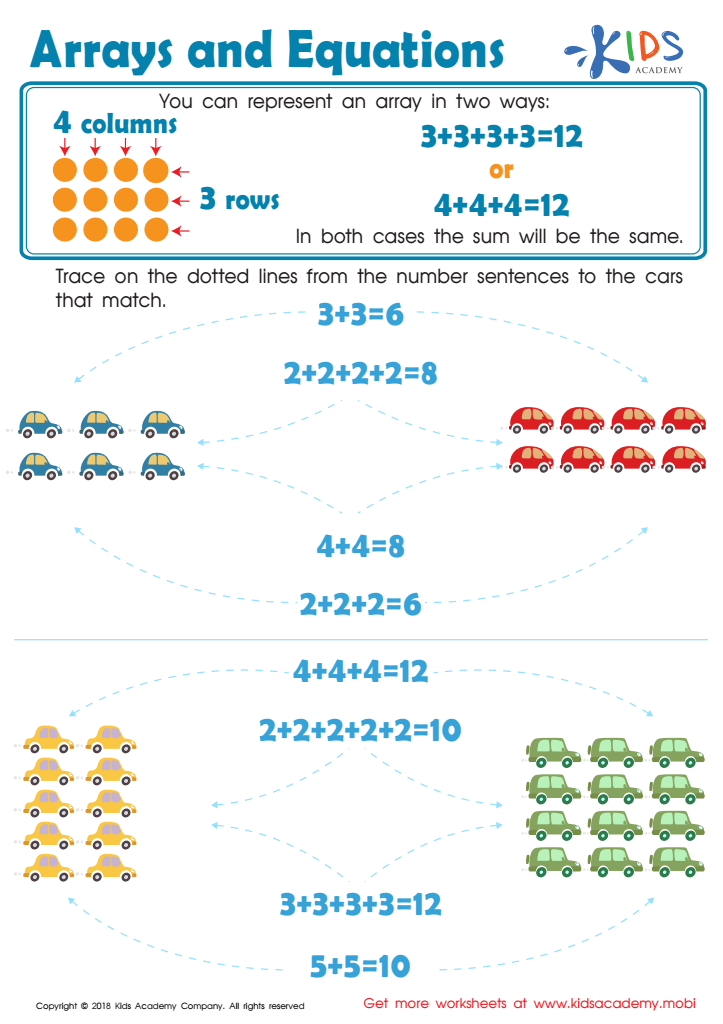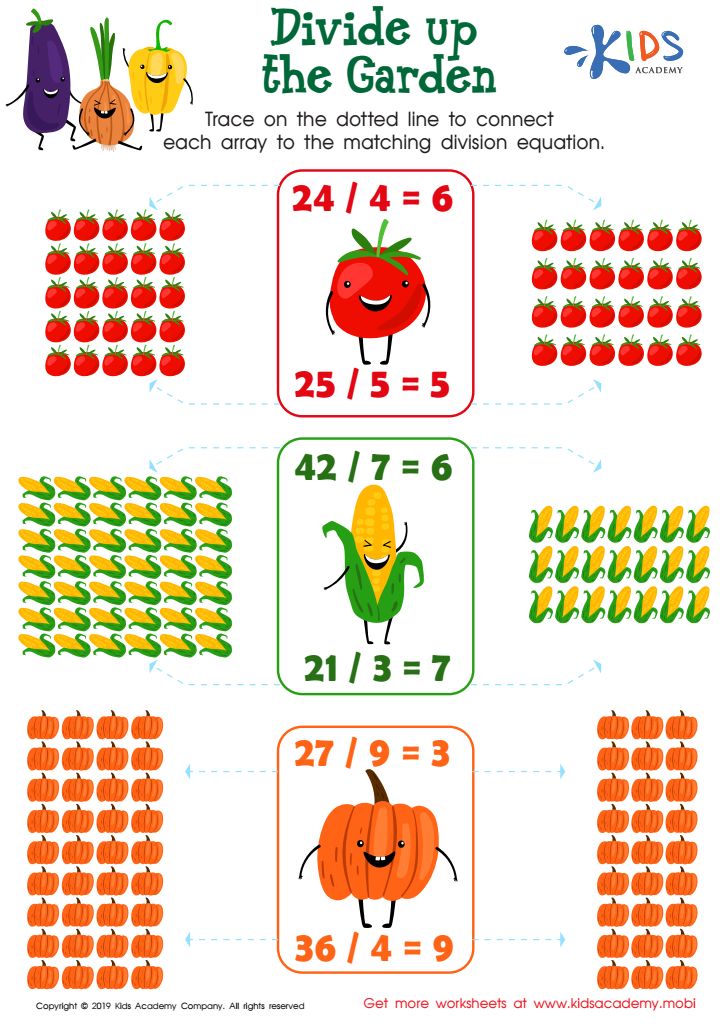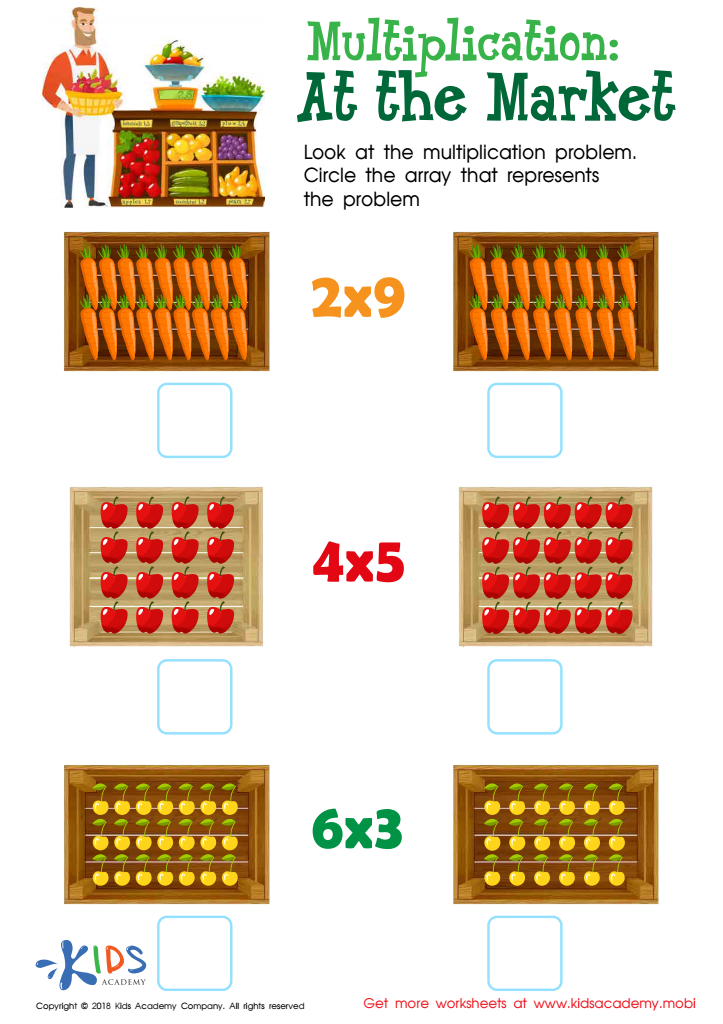Problem-Solving Skills Normal Arrays Worksheets for Ages 5-8
3 filtered results
-
From - To
Enhance your child's problem-solving skills with our engaging Normal Arrays Worksheets designed for ages 5-8. These worksheets provide fun, interactive exercises that utilize arrays to build a strong mathematical foundation. Your young learners will explore concepts such as multiplication, counting, and pattern recognition through a variety of visually appealing activities. By working with arrays, kids develop critical thinking abilities while improving their math skills in a playful environment. Our worksheets cater to diverse learning styles, ensuring each child enjoys mastering essential problem-solving strategies. Empower your child’s education and watch them thrive in their math journey with our easily accessible resources!


Arrays and Equations Worksheet


Divide up the Garden Worksheet


At the Market Worksheet
Parents and teachers should prioritize problem-solving skills involving normal arrays for children ages 5-8 because these foundational abilities are essential for mathematical development and cognitive growth. Normal arrays, typically represented in rows and columns, help children visualize relationships between numbers, enhance their spatial awareness, and improve their ability to organize information effectively.
Engaging with normal arrays fosters critical thinking, encouraging young learners to approach problems systematically. As children manipulate these arrays, they learn valuable strategies for addition, subtraction, multiplication, and even division, building a solid base for future mathematical concepts. Additionally, problem-solving skills cultivate resilience, as children learn to tackle challenges, make mistakes, and persist until they find a solution.
Beyond numerical proficiency, these skills contribute to overall cognitive development. They promote creativity and adaptability, enabling children to approach problems from various angles. Problem-solving activities teach collaboration and communication when done in groups, further enhancing social skills.
By integrating normal arrays into everyday learning, parents and teachers not only bolster children's mathematical skills but also prepare them for real-world situations where problem-solving is vital. Ultimately, fostering these skills lays the groundwork for lifelong learning and success in both academic and personal endeavors.
 Assign to My Students
Assign to My Students
















